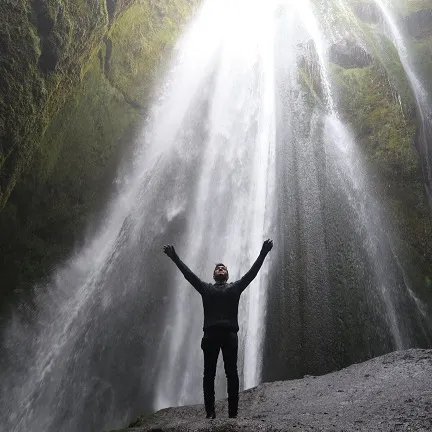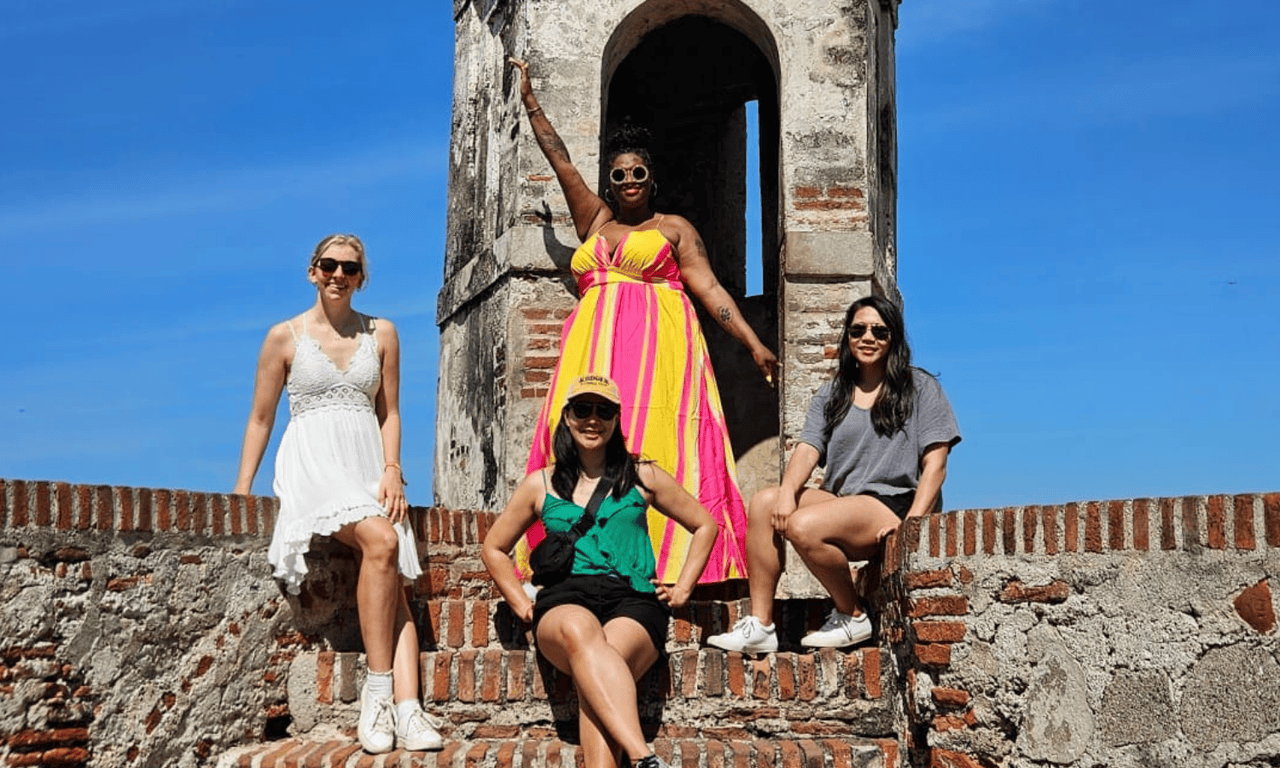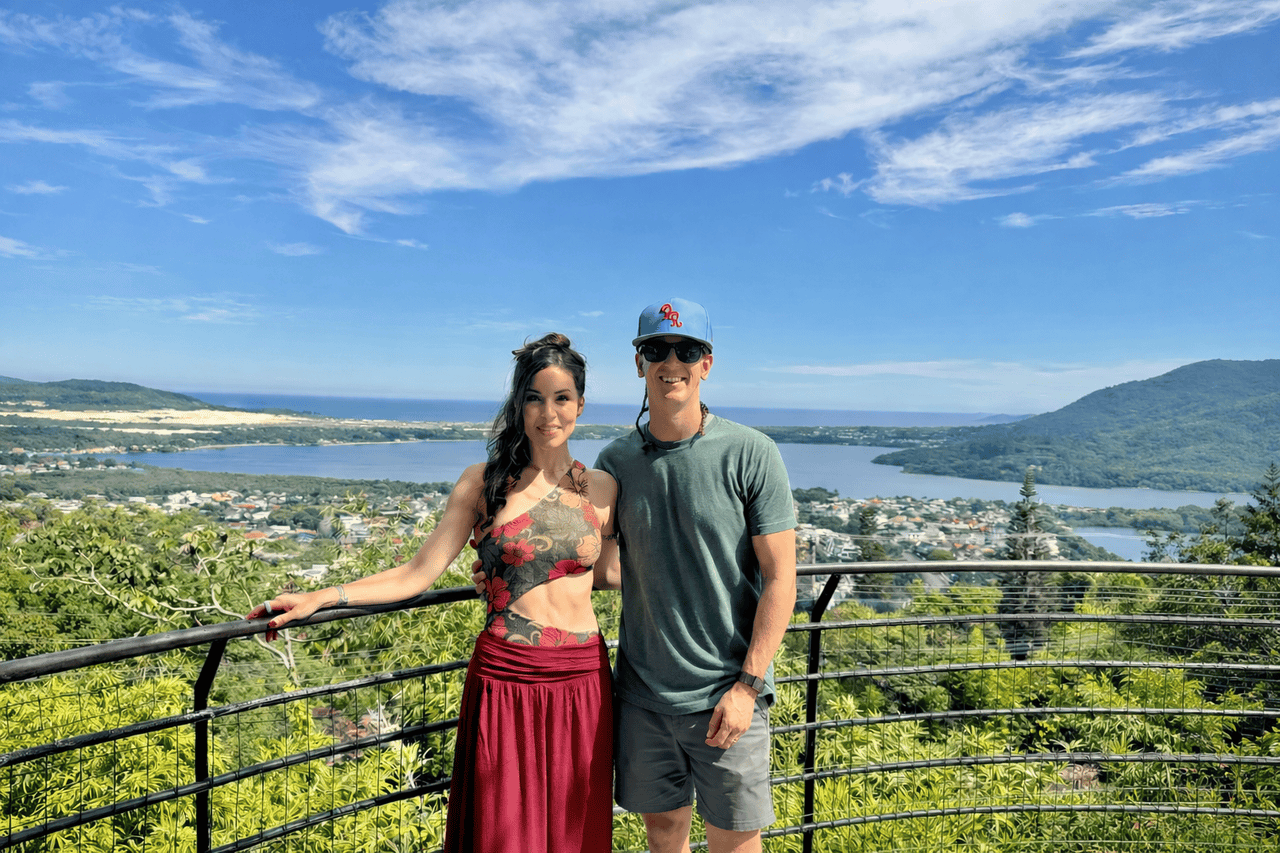What is it like to travel with chronic pain issues? In one word: hard.
That statement comes with a disclaimer though. It may be hard, but it's not impossible. It is not impossible and it is definitely worth the struggle.
To recap for those who may not know or remember, I have interstitial cystitis, pelvic floor dysfunction, and vulvar vestibulitis. What do all those words mean? Chronic pain. To read my full story, click here.
The most basic and quick explanation I can give you is that my pelvic floor muscles are too tight and spasm randomly while my nerves in that area sometimes fire pain for no reason. My bladder is also in a constant state of feeling like I have a UTI. Fun right?
I spent hours & hours in and out of doctors over the years and finally have a routine that works fairly well for me. I still have good days, bad days, and "why is this happening to me?!" days.
It is easy to allow these feelings to hold me back. Some days I just lay on the floor and cry because it is so frustrating, and sometimes so painful. It can be hard to accept my physical limitations at just 31 years old.
Do I let it hold me back? Not usually. I still try to live a normal-ish life and do the things that I want to.

Traveling with Chronic Pain
I travel often and it's a passion I've always had.
How am I able to travel? I'm not going to lie. It is difficult. It is full of real, true anxiety and sometimes panic attacks.
Here is a second disclaimer: Find a doctor that you can have a good relationship with. Be honest about your travel plans and have an open discussion with him or her.
Packing
Packing is by far the most daunting part of a trip for me. Preparing for the unknown is never easy, but you have to face it head on and just go for it.
I count out all of my different medications, and take careful inventory. My medications take the longest to pack and fill most of my bag. I bring all types of medications, supplements, and instant heating pads.
I think through every worst possible scenario and try to prepare.
Are there going to be toilets accessible? Better pack thick pads in case of an accident.
What if I have a bladder flare because the foods are too spicy or I eat something I shouldn't? Better pack my two rescue meds and heating pads.
What if my anxiety isn't manageable? Let's throw in Xanax just in case.
Okay, I'm packed with enough pills for a small village. Now what?
I get on the plane and I hope for the best.
I take as many precautions as possible to prevent any and all of my conditions from flaring up.
I make sure to wear supportive footwear so my body has the proper support it needs and doesn't strain itself more than necessary. I wear clothes that have stretch to them so that my abdomen doesn't have additional pressure on it. I do my stretching exercises every day, and sometimes a second time if it has been a physically strenuous day.

Talk About It
While these steps certainly help ease travel worries, the most important thing that I do is I talk about it.
I tell people that I have medical conditions. It is not something to be embarrassed about. I've repeated my story so many times that I could tell it in my sleep.
Telling my story didn't used to be so easy. I would get teary, cry, and even sometimes just get angry and frustrated trying to express how I am feeling. Opening yourself up in such a personal way can be exhausting and scary, especially when you don't know the audience well.
I travel often with a group of people that I do not know through Under30Experiences. I travel solo with them and it is the best experience I have ever had. It is essentially a group of strangers that come together and support each other to have an amazing cultural experience.
I have gone to Iceland, Mexico, and Peru with them and I'm planning my fourth trip. I might not know the people traveling with me for long, but I need to depend on them for the next week or so and I want them to understand who I am and where I'm coming from. The best way to do that is to open that scary imaginary door and share your story.
If the people you are traveling with know what you are going through, they are able to have more compassion and understanding. If they don't understand what you are dealing with, they may be quicker to make snap judgements and think things like: "Are we really stopping so she can use the bathroom again? Didn't we just do this?"

When I was in Peru, I had very high levels of anxiety some days.
My Spanish consists of basic verbs and reading a menu. In America, bathrooms are always around. Would it be the same in Peru?
I shared my story and fears with the trip leader and other travelers. The trip leader made sure that whenever I needed a toilet, he found one. He knew that I was extremely concerned about visiting Machu Picchu, as it only has one bathroom and it is located outside of the entrance gates. Not to worry, he again took care of everything and Machu Picchu was one of the most amazing experiences I have had to date...and I didn't have any incidents ;).
It is important to have a support system with you, but it is also important to have a support system at home.
Sometimes, you need someone to listen to you in the middle of the night because you are in pain or you are scared/worried/concerned about the next day. Having someone who knows you and is on your side is crucial in every day life, and especially when traveling. They are able to provide words of support and encouragement, or just listen.

Listen to Your Body
When traveling, I try to listen to my body.
It is important to try and acknowledge and respect my limitations. If I don't, I need to remember that there may be consequences. I do push myself too hard sometimes... and it does usually backfire.
Is it okay to take a day to recover even when you are in a new and exotic place that you may never visit again? Yes. The answer is always yes.
It is also okay to feel guilty about doing so. I do. But, I also try and keep in mind that this is what I need. If I keep pushing when my body is saying no, my body is going to push back even harder when trying to tell me to slow down.

The bottom line is, traveling with chronic issues is challenging but possible.
I prepare myself the best I can for all situations, and I don't let my diagnoses run my life.
For me, taking a chance and having a few bad days is better than sitting at home and dreaming of what can be!




.avif)


























